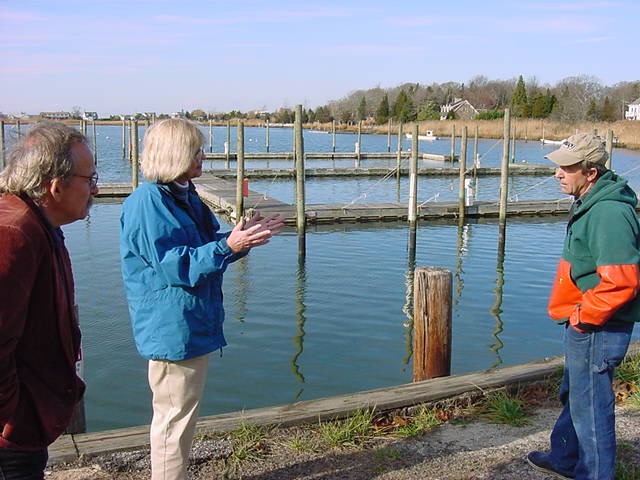
In many coastal communities, commercial fishermen, no longer able to obtain a livable income from shellfish harvesting, have had to find other sources of income. These traditional fishermen and their trade are key components in the ambience of coastal communities. Without them, seaside towns lose much of their identity. Wild shellfish stocks have declined in many areas, and coastal lands have become expensive.
Small-scale shellfish aquaculture may provide marine-based livelihoods for displaced fishermen, preserving a lifestyle crucial to maintaining the integrity of these communities. Aquaculture can also reduce fishing pressure on and enhance wild shellfish stocks.
This project evaluated potential environmental, regulatory, policy, economic and productivity issues associated with small-scale commercial aquaculture in Southampton, NY. It included a market assessment, developing cost-of-production models and surveying various stakeholder groups to determine attitudes, concerns and potential sticking points. (For a copy of the executive summary, click here.)
One recommendation was to create aquaculture “management areas” for transient (mobile) culture gear. One set of zones, for nursery rearing, would be in calmer, approved or conditionally closed (to shellfish harvesting) areas to avoid boat traffic. A second set of zones, for grow-out, would allow growers to move gear from shallow areas in summer to deeper water in the winter, to avoid ice. Another recommendation was to place operations in some fish trap areas, already designated for baymen use and protected from boat traffic.
The final results provide a roadmap for decision-making, addressing how to decide whether to proceed with small-scale aquaculture, and what constitutes acceptable, sustainable growth of the industry. The study has application for other coastal communities also contemplating small-scale aquaculture development, but concerned about adverse impacts, liability and the likelihood of success. Sustainable shellfish culture can flourish in communities where broad support exists among residents who, despite differing agendas, can agree on the benefits.